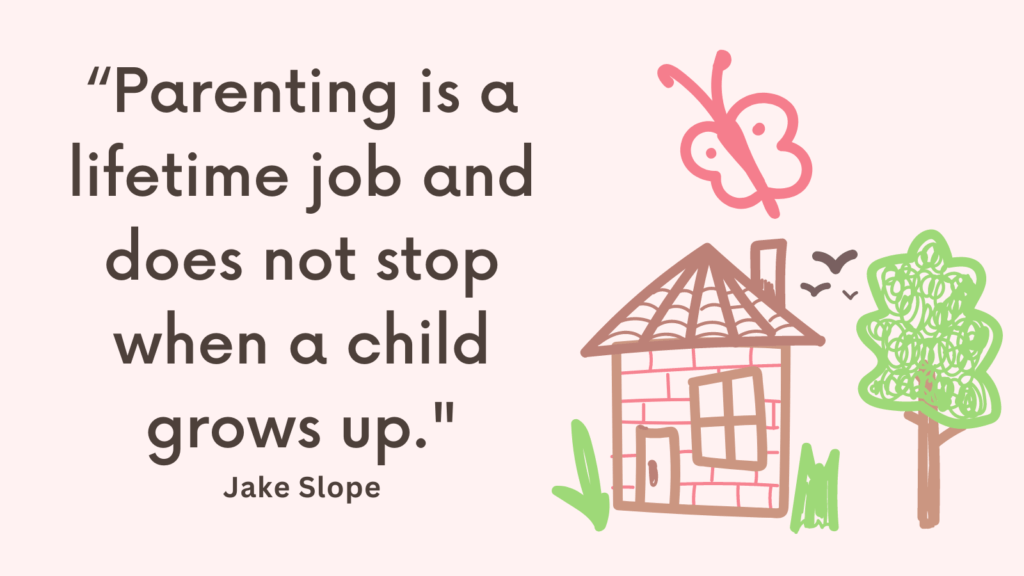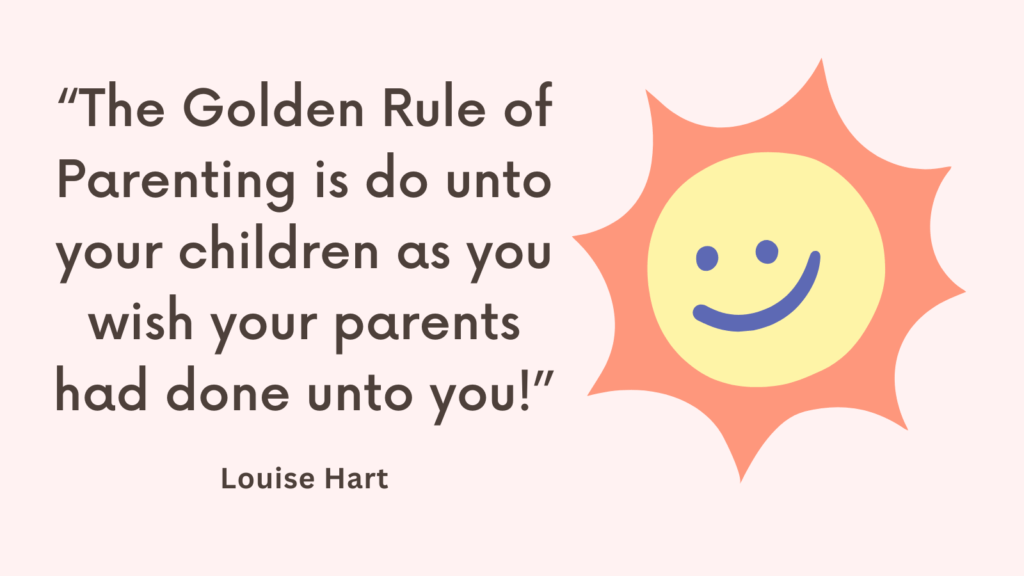This post contains some of the most common parenting myths.
Parenting Myths
1. “Children need to be pushed to achieve success.”
While it is important to encourage and support children in their pursuits, pushing them relentlessly can have adverse effects on their overall well-being and development.
It is essential to strike a balance between pushing and nurturing to foster a healthy growth mindset in children.
Pushing children excessively can lead to increased stress levels, anxiety, and a negative self-image. Instead of motivating them, it can create a fear of failure and a constant need for external validation.
Children who are constantly pushed may also lack autonomy and independence, as their actions become solely focused on meeting the expectations set by others. This can hinder their ability to explore their own interests and passions.
Supportive parenting, on the other hand, focuses on providing a safe and nurturing environment where children can discover and pursue their own talents and goals.
This approach encourages children to develop intrinsic motivation and a sense of satisfaction from their own accomplishments.
By being involved and interested in their children’s lives without imposing unrealistic expectations, parents can create an atmosphere in which children feel free to explore their own abilities and strengths.
For example, instead of forcing a child to excel in a particular sport or instrument because it is seen as prestigious, parents can expose them to various activities and let them decide what truly sparks their interest.
By allowing children to make choices based on their intrinsic motivation, they are more likely to develop a genuine passion, dedication, and commitment to their chosen pursuits.
Related: Best 10 Fatherhood Books
2. “Good parents should always be in control and never show vulnerability.”
Showing vulnerability can actually be beneficial as it teaches children the importance of honesty, communication, and emotional intelligence.
A key aspect of parenting is building trust and creating a safe space where children feel comfortable expressing their emotions.
When parents acknowledge their own vulnerabilities, they demonstrate that it is normal and acceptable to experience a range of feelings.
This open and honest approach helps children develop empathy and compassion towards others, as they learn to validate and support one another.
Moreover, displaying vulnerability allows for authentic and meaningful connections to form within the family.
By sharing personal struggles or admitting mistakes, parents foster an environment of understanding and growth.
It teaches children the value of learning from their own errors and provides an opportunity for collective problem-solving as a family unit.
Additionally, demonstrating vulnerability allows parents to model healthy coping mechanisms, which children can then apply to their own lives.
When parents openly express their emotions and practice self-care, they teach their children the significance of emotional well-being and self-compassion.
This can contribute to the development of resilient individuals who are better equipped to navigate life’s challenges.
Related: How To Deescalate A Child? Top 12 Tips
3. “Praising children constantly will boost their self-esteem.”
While positive reinforcement is important in parenting, excessive praise may not always have the desired effect of boosting self-esteem. In fact, it can potentially have the opposite outcome.
When children are praised for every little thing they do, they may develop a dependence on external validation and become hesitant to take risks or try new things for fear of not meeting expectations.
Additionally, constant praise may also prevent children from developing a realistic view of their abilities and limitations.
Instead of relying solely on constant praise, parents can focus on providing constructive feedback and encouragement.
This allows children to understand their strengths and areas for improvement, fostering a healthy sense of self-awareness.
Moreover, helping children develop intrinsic motivation rather than relying on external validation can have long-term benefits for their self-esteem.
By emphasizing the value of effort, perseverance, and resilience, parents can nurture a growth mindset in their children, encouraging them to take on challenges and learn from their failures.
Related: Am I A Helicopter Parent Quiz
4. “Siblings should always get equal treatment to avoid jealousy.”
While it may seem like a fair approach, this mindset overlooks the unique needs and individuality of each child.
Parenting is not about treating children equally, but rather about treating them fairly.
Fairness means acknowledging that each child is different and has their own set of requirements, strengths, and weaknesses.
For example, if one sibling requires extra help with academics, it wouldn’t be fair or helpful to force both children into the same activities or expectations.
Instead, parents should focus on nurturing each child’s individuality and supporting their respective interests and needs.
By doing so, parents can create an environment where siblings learn to celebrate each other’s successes rather than feel threatened by them.
Related: Helicopter Parenting: Pros and Cons of Over-Parenting
5. “Strict discipline is necessary for children to grow up well-behaved.”
While discipline is indeed crucial, it doesn’t necessarily have to be strict to achieve the desired outcome. In fact, overly strict discipline can sometimes do more harm than good.
Children thrive when they are provided with a nurturing and supportive environment that encourages positive behavior.
By fostering open communication, setting clear expectations, and offering guidance rather than imposing harsh punishments, parents can build a strong foundation for their children’s behavioral development.
For instance, instead of resorting to strict punishment, parents can utilize effective strategies such as timeouts, logical consequences, or positive reinforcement to teach children about responsibility and accountability.
Gentler approaches that focus on teaching empathy, problem-solving, and self-regulation skills can lead to long-lasting behavioral changes and help children develop into well-rounded individuals.
Related: Does My Child Need Occupational Therapy Quiz
6. “Parents can’t be friends with their children.”
While it is true that the parent-child relationship holds specific roles and responsibilities, being friends with your children can bring about numerous benefits.
Firstly, being friends with your children can foster open communication and trust. When parents establish a friendship with their children, they create a safe space for them to share their thoughts, feelings, and concerns without fear of judgment or criticism.
This open dialogue can lead to a deeper understanding of each other and a stronger bond. Secondly, being friends with your children allows for shared experiences and quality time together.
Engaging in activities and hobbies with your children can create lasting memories and strengthen the parent-child connection.
Lastly, being friends with your children does not mean compromising on discipline or authority. Parents can maintain their role as a guiding figure while still forming a close friendship.
With clear boundaries and consistent parenting strategies, parents can strike a balance between being a friend and setting limits.
Related: Does My Child Need Counseling Quiz
7. “Parental conflict doesn’t affect children as long as they’re not directly involved.”
Children are deeply affected by the conflicts that arise between their parents, regardless of whether they are actively involved in the arguments or not.
Witnessing their parents argue can cause emotional distress, anxiety, and even long-term negative impacts on their overall well-being.
Children are highly perceptive, and even if they are not physically present during a parental conflict, they can still pick up on the tension and hostility that lingers in the household.
This can lead to feelings of insecurity, confusion, and a sense of being unsafe within their own home environment.
Moreover, children often internalize these conflicts and may blame themselves for their parents’ disagreements, causing them to experience guilt or low self-esteem.
For example, imagine a couple constantly arguing in another room while their child plays alone in their bedroom. Although the child may not be directly involved in the conflict, they can still feel the negative energy and sense the strained atmosphere in the house.
They might become more withdrawn, exhibit changes in behavior or academic performance, and struggle with forming healthy relationships in the future.
Communicating openly about differences, seeking professional help if needed, and creating a safe space for dialogue can greatly mitigate the negative effects of parental conflict on children.
By modeling healthy problem-solving skills and fostering a positive family dynamic, parents can help their children navigate conflicts in a constructive way, ensuring a nurturing and supportive environment for their growth and development.
Related: Is My Child Gifted Quiz
8. “Babies who are spoiled with attention become clingy.”
Babies rely on their caregivers for comfort and security, and meeting their needs consistently helps them develop a sense of trust in their environment.
It is important to note that responding promptly to a baby’s cries and providing affection does not spoil them. On the contrary, it helps strengthen the parent-child bond, promotes secure attachment, and builds their self-confidence.
Research has shown that infants who receive responsive care and plenty of nurturing experiences tend to become more independent and socially adept as they grow older.
To illustrate this point further, consider a scenario where a mother responds immediately when her baby cries for attention. By meeting the baby’s needs promptly, the mother reassures the child that they are safe and loved. As a result, the baby develops a sense of security and learns that their caregiver will always be there when needed.
This fosters a healthy foundation for future relationships and enhances the child’s ability to explore the world confidently.
Related: Is My Child Highly Sensitive Quiz
9. “Children who engage in rough play will become aggressive.”
Rough play is a natural way for children to explore their physical abilities, learn social boundaries, and develop problem-solving skills.
It allows them to understand limits, negotiate rules, and build resilience.
For example, when children play-fight with their siblings or friends, they are learning the difference between play and real aggression. It helps them develop empathy and understand how their actions affect others.
Moreover, rough play can also have positive physical and emotional benefits for children, such as releasing pent-up energy and reducing stress.
It is important for parents to encourage safe and supervised rough play, as it can contribute to a child’s overall healthy development.
Related: Best 10 Books About Learning Disabilities
10. “Children need to be constantly entertained”
While it is essential to engage and stimulate children’s minds, it is equally important to provide them with opportunities for independent play and self-expression.
Constantly entertaining children can hinder their ability to develop creativity, problem-solving skills, and independence.
In fact, allowing them to have unstructured playtime, where they can use their imagination and explore their surroundings freely, can be highly beneficial for their cognitive and emotional development.
It allows them to learn how to entertain themselves, solve problems on their own, and foster a sense of independence.
Moreover, continuous entertainment might prevent children from discovering their own interests and passions, as they may become too reliant on external sources for stimulation.
Parents should strike a balance between providing enriching activities and giving their children the freedom to explore and entertain themselves.
Related: Best 10 Gentle Parenting Books
11. “Parenting gets easier as children get older.”
As children grow older, their needs and demands evolve, presenting new sets of challenges for parents to navigate.
From dealing with teenage rebellion to helping young adults make important life decisions, parenting continues to require patience, understanding, and adaptability.
Parents often imagine that once their children are no longer in diapers or have mastered basic skills like walking and talking, the difficult parts of parenting will be over.
However, the truth is that each stage of a child’s development brings its own unique set of challenges.
For example, while toddlers may require constant attention and supervision, teenagers often grapple with issues such as peer pressure, identity exploration, and academic stress. These challenges can be just as demanding, if not more, than the physical demands of early childhood.
Furthermore, as children get older, parenting becomes more nuanced. It involves guiding and supporting children through the complexities of life, helping them build resilience, and encouraging their independence.
This requires parents to listen actively, empathize, and provide guidance, all while maintaining a strong and trusting relationship.
It is a delicate balance between offering guidance and allowing children to make their own choices, which can sometimes be challenging for parents who may still feel responsible for their children’s actions.
While it is essential to acknowledge the growth and development in children as they get older, it is equally important to recognize that parenting is an ongoing journey that requires continuous effort.
Each stage of a child’s life brings new joys, rewards, and yes, challenges too.
Embracing the reality that parenting is a lifelong commitment can help parents be better prepared to tackle the unique obstacles that arise at different stages of their children’s lives.
Related: Best 10 Self Help Books For Teens
Where Do Parenting Myths Come From?
Parenting myths often arise from a variety of sources and can easily become ingrained in popular culture.
One common source of parenting myths is old wives’ tales or traditional wisdom passed down through generations.
For example, the belief that holding a baby too much will spoil them is a misconception that stems from the idea that it’s important for babies to learn independence from an early age.
Another source of parenting myths is the media, including books, magazines, and movies.
These portrayals of idealized parenting often create unrealistic expectations or perpetuate harmful stereotypes.
Additionally, social media plays a significant role in spreading parenting myths, as anecdotal experiences and opinions can be easily amplified and shared.
Related: Best 10 Books About Empty Nest
Conclusion
Parenting is a complex and challenging journey that often involves navigating through various misconceptions.
Parenting myths can often perpetuate unrealistic expectations and create unnecessary stress for both parents and children.
It is crucial for parents to be critical consumers of information and consult reputable sources such as pediatricians or child development experts to debunk these myths and make informed decisions about their children’s upbringing.




